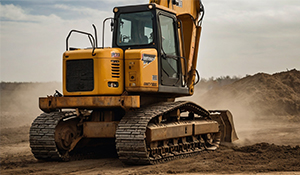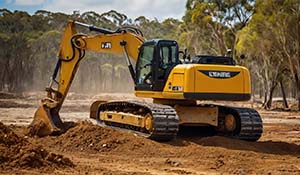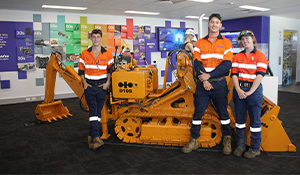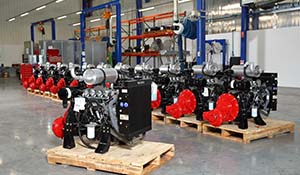FEATURE – Tips for Buying a Compact Fuel Trailer
If you’re operating off-highway machinery, it’s crucial to minimise your downtime. That often includes having a fuel supply that can be trailered to the vehicle. In terms of smaller, tow-behind fuel trailers, there are many options out there to meet your needs in terms of size, capacity, features and price.

Modern fuel trailers for mining and large-scale civil construction projects come in a low-profile design, with features like retractable hose reels, rollover protection and other built-in safety features, enclosed pump machinery for security and even solar-powered pump functionality. Additionally, these modern units are made to meet Australian standards for fuel storage and transportation.
However, these features come at a price and may not be necessary for your particular application, making such trailers uneconomical for occasional use, like drilling and exploration work, some construction projects and seasonal farming.

At the more affordable end of the fuel trailer spectrum, pump gear is exposed (not enclosed), powered pumps are replaced with hand cranks, wheels and axles are lighter, steel or aluminium is used for the tank construction (instead of polyethylene) and single-wall tanks are used in place of self-bunded (ie. double-wall) tanks.
You can also save on these tow-behind trailers by choosing an unbraked type, but be aware these may be limited to use within the boundaries of the farm or work site, as trailers of this type usually need to be braked in order to be road-registerable (check the rules in your state or territory).
There are also single axle and double axle options. Which type you choose will be determined in part by the terrain it’ll be used it on, but mostly by the tank capacity. For tanks of around 1,000 litres, a single axle should be sufficient, while tanks of 1,500 litres or greater usually require dual axles to take the loaded weight.
Dual axle designs are generally a superior choice, as they’re better balanced, with another benefit being easier attachment to the tow vehicle.

For farm use and other less extreme applications, simple is often best, so a single-axle fuel trailer should be sufficient - something with just the basics to keep that tractor, header or other equipment fuelled up and running.
Ultimately, when choosing a compact fuel trailer, you need to consider the fuel capacity you’re most likely to use, the legal requirements for fuel transportation and storage related to your intended application, along with the conditions the trailer will be used in.
There are plenty of options out there, but if you’re looking for an affordable fuel trailer, consider these options from Maryborough Machinery.

















